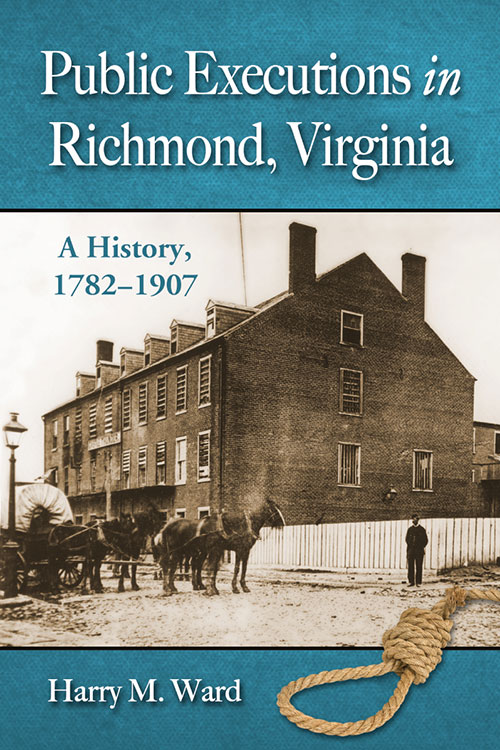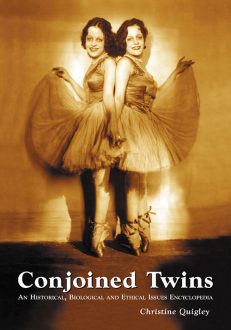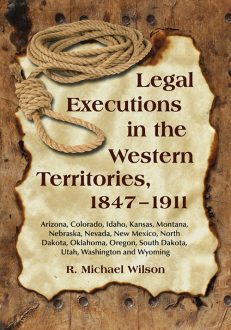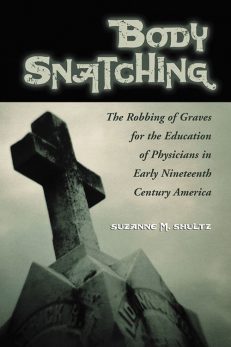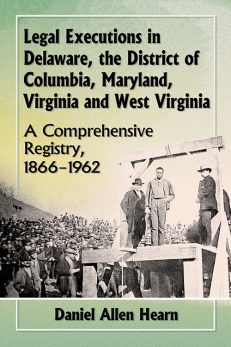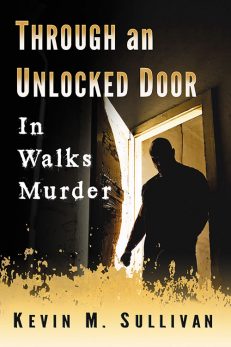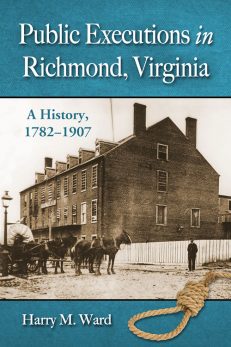Public Executions in Richmond, Virginia
A History, 1782–1907$29.95
4 in stock (can be backordered)
About the Book
Virginia’s capital city knew poverty, injustice, slavery, vagrancy, substandard working conditions, street crimes, brutality, unsanitary conditions, and pandemics. One of the biggest stains in the city’s past was the spectacle of public executions, attended by throngs. Thousands, including the old and the very young, reveled in a carnival-like atmosphere. This book narrates the history of the executions—hangings, and during the Civil War also firing squads—that formed a large part of Richmond’s entertainment picture. Revulsion slowly mounted until the introduction of the electric chair. The history has a cast of unusual characters—the condemned, the crime victims, family members, the executioners, and not least an 182 pound “gallows” dog.
About the Author(s)
Praise for the Book
- “as capital punishment fades into senescence, it is time to evaluate its long history…a useful foundation…Ward casts an unblinking eye…there is a story to be told about the consistent and pernicious influence of race and class…Ward performs the important task of making visible the long-buried life stories of those who would be otherwise lost forever”—The Journal of Southern History
- “provides detailed information…hanged criminals were overwhelmingly poor and/or black…gives readers a sense of the political, economic, and social conditions in the city…excellent”—ARBA
- “makes extensive use of original accounts…. In the litany of deaths it is very clear that most hanged were black and in poverty”—Reference & Research Book News
Bibliographic Details
Harry M. Ward
Format: softcover (6 x 9)
Pages: 231
Bibliographic Info: 22 photos, appendices, notes, bibliography, index
Copyright Date: 2012
pISBN: 978-0-7864-7083-9
eISBN: 978-0-7864-9259-6
Imprint: McFarland
Table of Contents
Acknowledgments v
Preface 1
1. “Usual Place of Execution” 7
2. “A Flood of Tears” 1782–1799 14
3. “Liberty of My Countrymen” 1800–1802 21
4. “Between the Heavens and the Earth” 1801–1826 29
5. “Sleep in Alien Dust” 1827 33
6. “Hideous Curiosity” 1828–1851 41
7. “In Cold Blood” 1852 49
8. “The Mob Is Coming” 1853–1860 57
9. “To Be Shot to Death by Musketry” 1861–1865 67
10. “Farewell, Brave Spirit” 1861–1865 79
11. “Certainly Horrible to Look At” 1861–1865 90
12. “The Last Carnival of Death” 1865–1869 102
13. “You’re Gwyne to Hell” 1870–1882 110
14. “Wait, I’m Not Done Yet” 1883 122
15. “Cluverius’s Day” 1884–1887 131
16. “Good-Bye, Boys” 1888–1899 141
17. “You Knowed I Won’t Crazy” 1900–1907 150
Epilogue 157
Appendices: 169
A. Profile of an Executioner—John Caphart 169
B. The Last Days of Spencer Kellogg Brown in His Own Words,
September 1865 171
C. “Sleepless Sentinel at Castle Thunder” 173
D. Sentencing of James Jeter Phillips by Judge George L. Christian of the Henrico Circuit Court, July 10, 1868 176
E. The Prosecutor, Colonel W.R. Aylett, States the Case Against
Thomas J. Cluverius, 1885 178
F. “An act to establish a permanent place in the State penitentiary … [and] to change the mode of execution … [to] electricity,” March 16, 1908 189
G. Richmond Executions 191
Chapter Notes 195
Bibliography 207
Index 215

